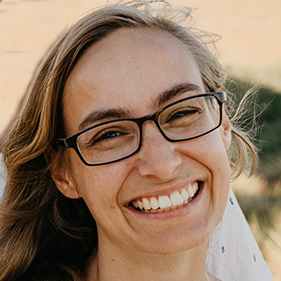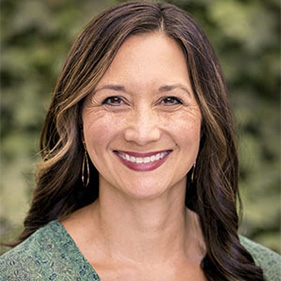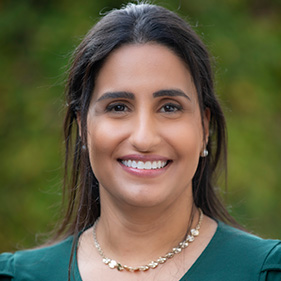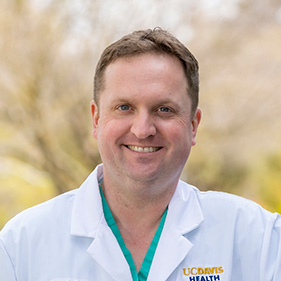When a routine ultrasound at 20 weeks revealed a potential heart defect in their developing baby, Stephanie and Travis Dover of Folsom were caught off guard. As the parents of six other children, including three who were born at home without issue, they had not faced something like this.
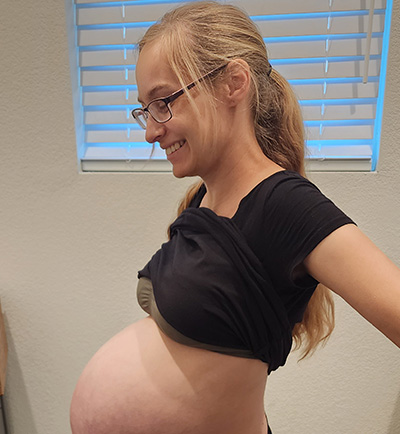
"I'm an ultrasound technician and I was not really worried at first. We often request additional pictures," Travis Dover said. "But when I got the report, I didn't believe it. I was like, 'Oh my goodness. Really? This condition is like 1 in 3,000 to 4,000.'"
The ultrasound showed it was likely d-TGA, Dextro-Transposition of the Great Arteries. This birth defect involves the two main arteries carrying blood out of the heart. In cases of d-TGA, the arteries are switched in position, or "transposed", which leaves the heart without oxygenated blood. Babies with d-TGA need surgery within days of birth.
Since the Dovers' health care provider was not equipped to address the complex heart condition, the couple was referred to a health care provider in the Bay Area. It was a hardship finding child care for their children, who range in age from 2 to 12, but they found a babysitter. Then the couple made the initial two-hour trip for a fetal echocardiogram — a more detailed ultrasound of the baby's heart.
A few more tests were run and then the reality of the situation set in. Their developing baby had a confirmed d-TGA diagnosis and needed treatment and they were more than two hours away from their home in Folsom.
The thought of having to travel outside of the area with all our kids was overwhelming. We did not know what we were going to do."-Stephanie Dover, Vincent's mom
"We immediately started trying to figure out where all of us could stay," Travis Dover added. "We also needed someone to watch the kids while we were at the hospital. But our friends who could watch the kids are here. Our support system is here, not in the Bay Area."
"The thought of having to travel outside of the area with all our kids was overwhelming," Stephanie Dover added. "We did not know what we were going to do."

The logistics were daunting and their baby would likely spend weeks in the hospital after delivery. How could they be away from home that long? The Dovers had just six short weeks to figure it out.
The quest for local care begins
Stephanie made the initial call to UC Davis Children's Hospital the week of Feb 27, 2023. She was due in April. Time was ticking.
Specifically, she sought help from the UC Davis Fetal Care and Treatment Center. As the first comprehensive multidisciplinary fetal diagnosis and therapy center in inland Northern California, it includes internationally renowned physicians with the expertise the Dovers needed.
This family had additional challenges. I did my best to reassure her and give her all the information so they could make an informed decision."-Amy Powne, Nurse Practice Manager, Fetal Care and Treatment Center
Stephanie spoke to Amy Powne, nurse practice manager of the center.
"When Stephanie called me, she was panicked. Most moms are since they just got the news their child needs critical care," Powne said. "But this family had additional challenges. I did my best to reassure her and give her all the information so they could make an informed decision."
"Amy was amazing. So helpful. So kind," Stephanie Dover said. "It wasn't until that phone call that I even knew what UC Davis Children's Hospital had to offer."
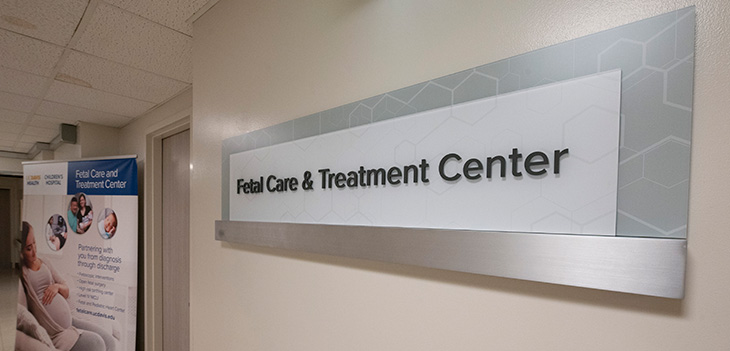
It was just the beginning. Sherzana Sunderji, director of Fetal Cardiology & Echocardiography, met with the Dovers.
"At UC Davis, we recognize the significance of offering exceptional local care for families navigating the complexities of fetal cardiac diagnosis, and post-natal cardiac care," Sunderji said.
In addition to care before birth, UC Davis offers maternity services, a Neonatal Intensive Care Unit (NICU), a comprehensive Pediatric Heart Center and a Pediatric Cardiac Intensive Care Unit (PCICU) . It was everything the Dovers' baby would require. Plus, they wouldn't have to leave the Sacramento area.
The family knew what they had to do: get a referral to UC Davis Children's Hospital. It took persistence as Stephanie Dover advocated for herself and her baby. But they got one.
At UC Davis, we recognize the significance of offering exceptional local care for families navigating the complexities of fetal cardiac diagnosis, and post-natal cardiac care."-Sherzana Sunderji, Director, Fetal Cardiology & Echocardiography
"By collaborating with their insurance, we were able to ensure that the Dovers could access care within their community and be surrounded by their support system," Sunderji said. "Being entrusted with Vincent's heart journey is an honor we cherish, and we will continue to champion fetal cardiac health and family centered care."
A comprehensive, family-centered care team
From the first appointment, Stephanie knew they were in the right place.
"Everyone was really helpful. I felt like I had a whole team on my side," Stephanie Dover said. "We even got to meet the surgeon which was reassuring. He told us he had kids of his own and would take good care of our son. He made it much less scary."
"I think one of the keys to Vincent doing well was his mother was followed diligently in our fetal care treatment center by our cardiologists," said Timothy Pirolli, one of two UC Davis Children's Hospital pediatric cardiothoracic surgeons. "Having the opportunity to speak to his family about his heart condition and likely surgical plan before he was born helped them to understand what to expect after he was born."
Delivery day arrives
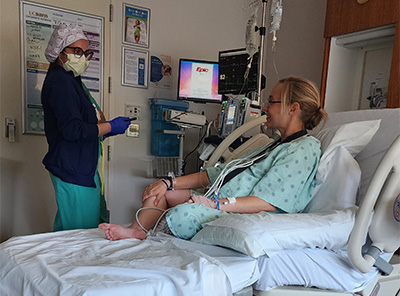
First things first — having the baby. When the scheduled delivery date came, April 17, 2023, the labor and delivery team rallied around Stephanie.
"I was really scared. The team gave me courage and met my needs without even having to ask. My birthing experience was probably the best I've had," the mother of seven said.
The Dovers had been warned that newborns with d-TGA can have a bluish looking skin color — called cyanosis — because their blood doesn't carry enough oxygen. That was exactly what happened.
"We expected it, so we were not surprised," Stephanie Dover said. "They explained it so well."
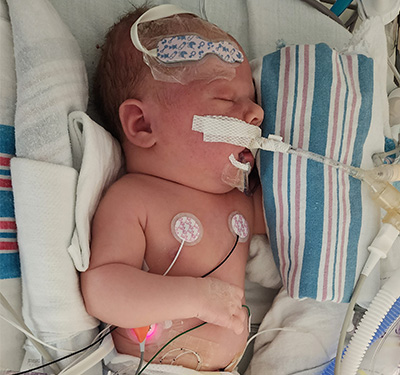
About one-third of newborns with d-TGA have extremely low oxygen levels and require immediate intervention. This was the case with the Dovers' child. Their newborn son, an 8.5-pound boy named Vincent, was whisked away to have a balloon atrial septostomy (BAS). This procedure enlarges a naturally occurring hole between the left and right atria so blood from both sides of the heart can now mix together, oxygenating blood in the newborn's body. For babies like Vincent, access to specialized care immediately after birth is essential for survival.
Chief of pediatric cardiology and pediatric interventional cardiologist Frank Ing did the BAS. Vincent spent the next two days recovering in the Neonatal Intensive Care unit while awaiting heart surgery for the defect.
"Being away from our other children was hard, but we knew they were being taken care of," Stephanie Dover said, "and so was Vincent."
The long-awaited cardiothoracic surgery
On day three, Pirolli performed the surgery known as the arterial switch procedure. This involves reconstructing the heart so the aorta is attached to the left ventricle and the pulmonary artery is attached to the right ventricle.
The Dovers were given updates throughout the procedure.
"Dr. Pirolli told us it was a textbook TGA surgery," Stephanie Dover said. "We were so relieved."
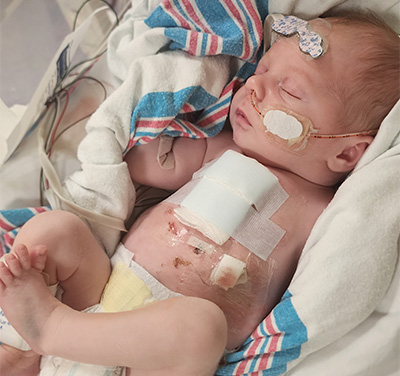
"People in this community don't have to go out of the area for their pediatric cardiac care. We perform many complex cardiac surgeries like this year-round," Pirolli said. "Cases like Vincent's highlight our ability to work as a team to help not just the baby, but also his family, successfully navigate the challenges of congenital heart disease early in life."
Not only did the team keep a close eye on Vincent, they made sure his mom was doing well, too.
"It was such a home environment, complete with our own personal cheerleaders," said Stephanie Dover. "Like when Dr. Sunderji came to check on us. She was smiling and giving hugs, really encouraging us after the surgery. They were all so caring."
People in this community don't have to go out of the area for their pediatric cardiac care. We perform many complex cardiac surgeries like this year-round." -Tim Pirolli, Pediatric Cardiothoracic Surgeon
A heartfelt thank you
Vincent spent a total of two weeks at UC Davis Children's Hospital: three days in the NICU and 11 days in the PCICU. He required a feeding tube for a short while after leaving the hospital, but had no complications following heart surgery.
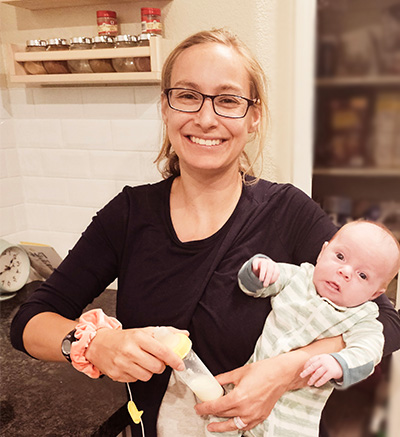
"I believe Vincent would not be alive today if it weren't for the team effort," Travis Dover said. "Everyone worked so well together."
It was an intense couple of weeks for the Dovers, but as they hold their now 5-month-old Vincent, they say having local expertise made all the difference.
"I can't express how grateful we are. We felt involved in the care from the start. We knew every step they were taking, and even what we needed to do to help Vincent heal," Travis Dover said. "And they were seriously rooting for our child the whole time. It was awesome."
"And Amy," Stephanie added. "If Amy hadn't helped me, I don't know where we'd be. From the beginning, we were treated with such care. Everyone should know about UC Davis Children's Hospital and get care for their kids there without having to leave home. It's the best hospital experience we've ever had."

